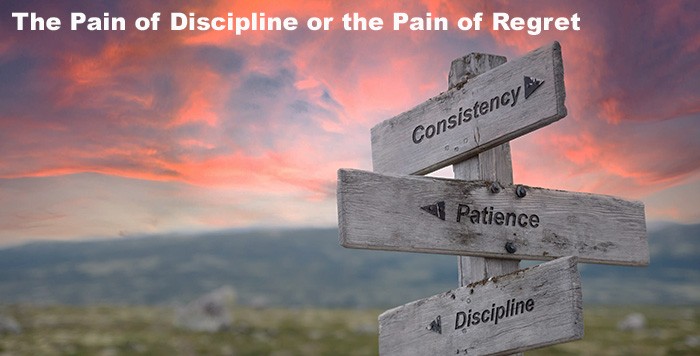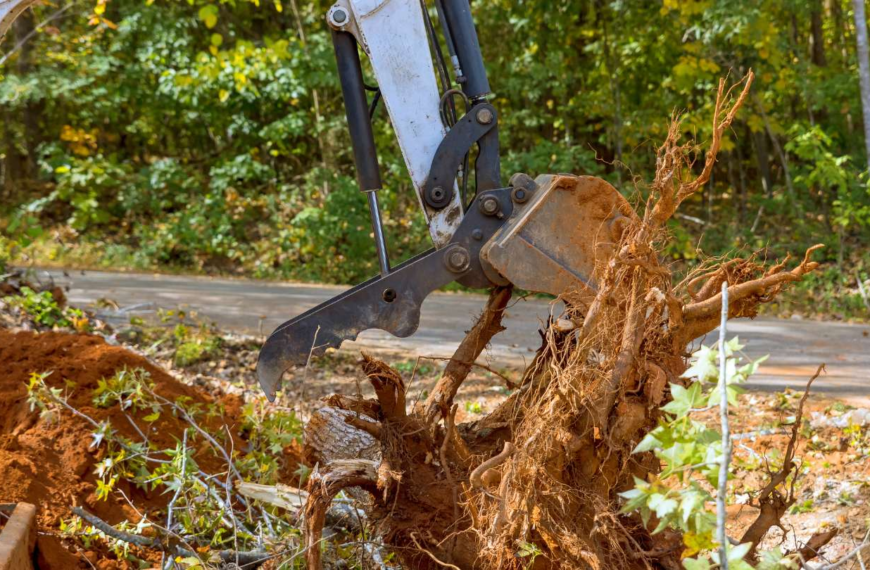Life is filled with choices, and these choices often come down to two paths: the pain of discipline or the pain of regret. Both paths are uncomfortable in their own ways, but one leads to growth, achievement, and success, while the other often leads to disappointment, missed opportunities, and a sense of what could have been. The decision to embrace discipline over indulgence or to avoid the difficult but necessary work of discipline often shapes the trajectory of our lives.
The Pain of Discipline: Embracing Hard Work and Commitment
Discipline is often viewed as the ability to stay focused on long-term goals, even when it is challenging. The pain of discipline involves pushing yourself to do what is necessary to achieve your desired outcomes, even when distractions or temptations arise. Whether it’s waking up early to work on your goals, resisting unhealthy foods, or sticking to a fitness routine, the pain of discipline can be taxing.
The Struggles of Discipline
At the heart of the pain of discipline is discomfort. This discomfort comes in many forms—mental, emotional, and physical. For example, sticking to a fitness routine means pushing through fatigue and soreness. Following a strict work schedule demands mental focus and effort, even when procrastination feels easier. Avoiding temptations, whether related to food, bad habits, or distractions, requires a significant amount of emotional control.
Despite these challenges, the pain of discipline is often a necessary price to pay for success. It is what separates those who achieve their dreams from those who fall short. Discipline forces you to take consistent action, even when you don’t feel like it. This consistent action is what leads to progress over time, helping you build skills, achieve your goals, and ultimately experience greater satisfaction in life.
The Rewards of Discipline
The pain of discipline often feels immediate and intense, but the rewards it yields are far-reaching and enduring. When you choose discipline, you invest in your future self. Whether it’s a healthier body, a thriving career, or a stronger relationship, the benefits of discipline accumulate over time.
For example, someone who consistently adheres to a workout regimen might experience improved health, increased energy, and a sense of confidence. A person who sticks to a study schedule might excel academically and secure better career opportunities. The rewards of discipline are often long-term, but they are also deeply fulfilling, offering a sense of accomplishment that is far more satisfying than temporary pleasures or shortcuts.
The Pain of Regret: The Burden of Missed Opportunities
On the other hand, the pain of regret is the feeling of disappointment and dissatisfaction that arises when we fail to take the necessary actions in pursuit of our goals. It is the feeling you get when you look back and realize you could have done more, but chose to take the easier path instead. Regret often stems from moments of indecision, procrastination, or fear, when we chose comfort over effort.
The Burden of Inaction
The pain of regret is born from missed opportunities. These are the moments when we chose the short-term gratification of laziness, distraction, or fear over the long-term rewards of discipline. It could be the regret of not starting a business because you were afraid of failure, or the disappointment of not taking the time to strengthen a relationship that eventually fades. Often, the pain of regret is a lingering ache that grows stronger over time, as the realization sets in that the window for certain opportunities has closed.
Unlike the pain of discipline, which is temporary and often leads to growth, the pain of regret tends to last. Regret can haunt us for years, as we dwell on the things we didn’t do, the risks we didn’t take, or the goals we never pursued. The longer we avoid action, the greater the weight of regret becomes.
The Emotional Toll of Regret
Regret often comes with a heavy emotional toll. It can lead to feelings of guilt, shame, and disappointment. The pain of regret is not just about missed opportunities; it is also about the realization that we did not live up to our potential. This emotional burden can affect self-esteem, mental health, and even our ability to move forward.
For example, someone who regrets not taking the time to pursue their passion might feel disillusioned or unfulfilled in their career. A person who neglected to care for their health may experience physical discomfort and emotional distress when they see the effects of their choices. Regret can leave a person feeling stuck in the past, unable to break free from the sense of loss or failure.
The Relationship Between Discipline and Regret
While discipline and regret seem like opposite ends of the spectrum, they are deeply connected. The pain of discipline can be thought of as a way to prevent the pain of regret. Every time you choose discipline over comfort, you are actively avoiding future regret. For example, choosing to study instead of procrastinating today is a small sacrifice that prevents the regret of poor grades or missed opportunities later on.
The key to avoiding the pain of regret is to make small, consistent decisions that align with your long-term goals. When you choose discipline, you are making an investment in a future where you have fewer regrets and more achievements to look back on. The act of making disciplined choices today can help you avoid regret tomorrow.
How to Embrace the Pain of Discipline
While discipline may seem difficult at times, there are several strategies you can use to make it more manageable and ultimately more rewarding. Here are a few tips to help you embrace the pain of discipline:
- Set Clear Goals: Having a clear understanding of what you want to achieve helps you stay motivated when times get tough. Write down your goals and break them into manageable steps so you know exactly what needs to be done each day.
- Create a Routine: Establishing a routine helps you stay on track and reduces the likelihood of procrastination. Incorporate discipline into your daily life so that it becomes a habit rather than a struggle.
- Reward Yourself: While the pain of discipline may feel uncomfortable, it’s important to reward yourself for making progress. This could mean taking a break after completing a challenging task or treating yourself to something you enjoy once you’ve met a goal.
- Find Support: Surround yourself with people who encourage and motivate you. Whether it’s a workout buddy, a mentor, or a friend, having support can help you stay committed to your goals.
- Focus on the Bigger Picture: When the pain of discipline feels overwhelming, remind yourself of why you are doing it. Focus on the long-term benefits, and understand that the discomfort you feel now will lead to greater satisfaction in the future.
Avoiding the Pain of Regret: The Importance of Taking Action
Regret is often the result of inaction or avoiding discomfort. It’s easy to put things off, to avoid taking risks, or to let fear dictate our choices. However, the longer we avoid doing what needs to be done, the more regret we accumulate. To avoid the pain of regret, it’s essential to take action, even when it feels difficult or uncertain.
Here are some strategies to avoid the pain of regret:
- Take Small Steps: It’s easy to become overwhelmed by big goals. Instead of trying to do everything at once, break your goals into smaller, more manageable tasks. Taking small steps will build momentum and help you avoid procrastination.
- Confront Fear: Fear is a major barrier to taking action. Whether it’s fear of failure, fear of rejection, or fear of the unknown, confronting your fears head-on is key to avoiding regret. Recognize that fear is often a sign that you are on the brink of something important.
- Stop Waiting for the “Perfect” Moment: Perfection is an illusion. The longer you wait for everything to be ideal, the more opportunities you’ll miss. Start now, even if conditions aren’t perfect. Action is far more effective than endless waiting.
- Learn from Mistakes: Regret often stems from mistakes that weren’t addressed. Instead of dwelling on past errors, focus on what you can learn from them. Mistakes are a natural part of the learning process and should be seen as stepping stones rather than setbacks.
Conclusion: Choosing the Right Path
Ultimately, the choice between the pain of discipline and the pain of regret is one of perspective. Discipline requires sacrifice, but it also brings long-term rewards. Regret, on the other hand, results from avoiding discomfort, but it leaves us with a sense of missed opportunity and unfulfilled potential.
Choosing the pain of discipline may not always be easy, but it is a choice that leads to personal growth, achievement, and lasting satisfaction. When you choose discipline over the fleeting comforts of procrastination and avoidance, you are building a future you can be proud of. In the end, the pain of discipline is fleeting, while the pain of regret can last a lifetime. So, embrace discipline today, and avoid the painful consequences of regret tomorrow.














